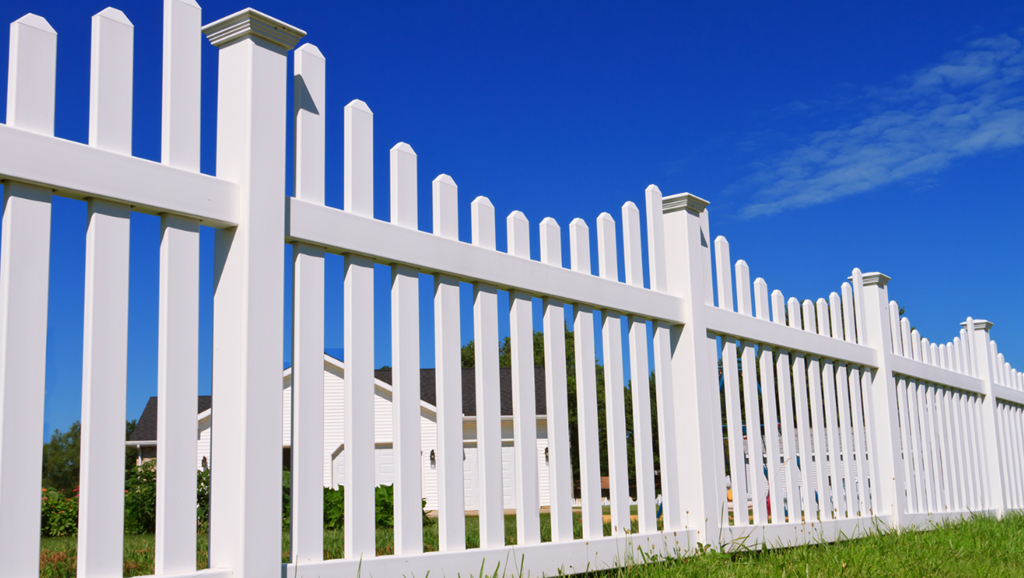
A gate isn’t just a functional entryway; it’s a statement piece, a first impression, and a crucial element of your property’s security. Choosing the right material for your fence gate is a decision that balances aesthetics, durability, and budget. With a plethora of options available, from classic wood to modern composites, navigating the choices can be overwhelming. This comprehensive guide will delve into the best materials for picket fence gates, exploring their pros, cons, and suitability for different needs, ensuring you make an informed and lasting investment.
Understanding the Core Requirements: Durability, Security, and Aesthetics
Before diving into specific materials, it’s essential to define the core requirements for a successful gate. Firstly, durability is paramount. A gate must withstand the elements, resist warping, rotting, or corrosion, and maintain its structural integrity over time. Secondly, security is a primary concern. The gate should provide a robust barrier against unwanted intrusion, deter trespassers, and ensure privacy. Thirdly, aesthetics play a crucial role. The gate should complement your home’s architectural style and enhance the overall curb appeal. Ultimately, the best material will strike a balance between these three factors, tailored to your specific needs and priorities.
Wood: Timeless Elegance with Natural Charm (But Maintenance Demands)
Wood remains a popular choice for fence gates, prized for its natural beauty and versatility. It offers a classic, warm aesthetic that complements various architectural styles, from traditional to rustic. However, wood requires regular maintenance to prevent rot, warping, and insect infestation.
- Cedar: This naturally rot-resistant wood is a popular choice for outdoor applications. Its rich color and pleasant aroma add a touch of elegance to any property. Cedar contains natural oils that deter insects and decay, making it a durable option. However, it can be more expensive than other wood varieties.
- Redwood: Known for its strength and durability, redwood is another excellent choice for fence gates. Its natural resistance to decay and insects makes it a long-lasting option. However, like cedar, it comes with a higher price tag.
- Pressure-Treated Pine: This affordable option is treated with chemicals to resist rot and insects. While it’s a cost-effective solution, it may require more frequent maintenance than cedar or redwood. It’s vital to choose high-quality pressure-treated pine to ensure longevity.
- Hardwoods (Oak, Teak): These woods are extremely durable and offer a luxurious aesthetic. Oak and teak are incredibly strong and resistant to decay, making them ideal for high-traffic areas. However, they are also the most expensive wood options.
Considerations for Wood Gates:
- Regular sealing or staining is essential to protect the wood from moisture and UV damage.
- Proper installation and hardware are crucial to prevent sagging and warping.
- Wood gates require periodic inspections for signs of rot, insect damage, or structural issues.
Metal: Strength and Security with Modern Appeal (But Potential for Rust)
Metal gates offer superior strength and security, making them ideal for properties requiring a robust barrier. They provide a sleek, modern aesthetic that complements contemporary architectural styles.
- Wrought Iron: This classic material is known for its strength, durability, and intricate designs. Wrought iron gates offer a timeless elegance and provide excellent security. However, they are susceptible to rust and require regular maintenance, such as painting or powder coating.
- Aluminum: Lightweight and rust-resistant, aluminum is a popular choice for fence gates. It offers a modern aesthetic and requires minimal maintenance. Aluminum is also more affordable than wrought iron, making it a budget-friendly option.
- Steel: Galvanized steel gates offer exceptional strength and durability. They are resistant to rust and corrosion, making them suitable for harsh climates. Steel gates can be customized with various designs and finishes, offering versatility in aesthetics.
Considerations for Metal Gates:
- Proper galvanization or powder coating is essential to prevent rust and corrosion.
- Heavy-duty hinges and hardware are crucial to support the weight of metal gates.
- Professional installation is recommended to ensure proper alignment and functionality.
Vinyl: Low Maintenance and Weather Resistance (But Limited Design Options)
Vinyl gates offer a low-maintenance and weather-resistant alternative to wood and metal. They are resistant to rot, insects, and fading, making them a durable option for various climates.
- Vinyl gates are available in various colors and styles, but the design options are more limited than wood or metal.
- They require minimal maintenance, typically only needing occasional cleaning with soap and water.
- Vinyl gates are resistant to warping and cracking, making them a long-lasting option.
Considerations for Vinyl Gates:
- Vinyl gates may not offer the same level of strength and security as metal gates.
- They can become brittle in extreme cold and may fade or discolor over time.
- The aesthetic appeal of vinyl gates may not be as appealing as wood or metal for some homeowners.
Composite Materials: The Best of Both Worlds (But Higher Initial Cost)
Composite materials, such as wood-plastic composites (WPCs), offer a blend of the natural beauty of wood and the durability of plastic. They are resistant to rot, insects, and fading, making them a low-maintenance option.
- Composite gates offer a wide range of colors and textures, mimicking the look of natural wood.
- They are resistant to warping, cracking, and splintering, making them a safe and durable option.
- Composite gates require minimal maintenance, typically only needing occasional cleaning.
Considerations for Composite Gates:
- Composite gates can be more expensive than wood or vinyl gates.
- They may not offer the same level of strength and security as metal gates.
- The aesthetic appeal of composite gates may not be as appealing as natural wood for some homeowners.
Related: Factors to Consider When Selecting the Ideal Fence for Your Farm
Factors to Consider When Choosing a Gate Material:

- Climate: Consider the climate in your area. If you live in a humid or rainy climate, choose a material that is resistant to rot and corrosion.
- Budget: Set a budget for your gate project and choose a material that fits within your price range.
- Security Needs: If security is a primary concern, choose a strong and durable material, such as metal or composite.
- Aesthetic Preferences: Choose a material that complements your home’s architectural style and personal preferences.
- Maintenance Requirements: Consider the maintenance requirements of each material and choose one that fits your lifestyle.
- Installation: Consider the complexity of installation and whether you will need professional help.
Picket Fence (FAQs):
- Q: What is the most durable fence gate material?
- A: Galvanized steel and wrought iron are generally considered the most durable materials for fence gates.
- Q: What is the most affordable fence gate material?
- A: Pressure-treated pine and vinyl are typically the most affordable options.
- Q: What is the best low-maintenance fence gate material?
- A: Vinyl and composite materials require minimal maintenance.
- Q: Can I install a fence gate myself?
- A: Simple vinyl or wood gates can be installed by experienced DIYers. Metal and complex wood gates are best left to professionals.
- Q: How often should I maintain a wooden fence gate?
- A: Wooden gates should be inspected annually and sealed or stained every 2-3 years.
- Q: Do metal gates rust?
- A: Wrought iron and steel gates can rust if not properly galvanized or powder coated. Aluminum is naturally rust-resistant.
Related: Creating a Safe and Fun Fenced Yard for Your Animals
Conclusion: Tailoring Your Choice to Your Unique Needs
Choosing the best material for your fence gate is a decision that requires careful consideration of various factors, including durability, security, aesthetics, and budget. By understanding the pros and cons of each material, you can make an informed decision that meets your specific needs and enhances the beauty and security of your property. Whether you opt for the timeless elegance of wood, the robust security of metal, the low maintenance of vinyl, or the balanced performance of composite, a well-chosen gate will provide years of reliable service and enhance your home’s overall curb appeal. Ultimately, the best material is the one that best suits your individual requirements and preferences.





